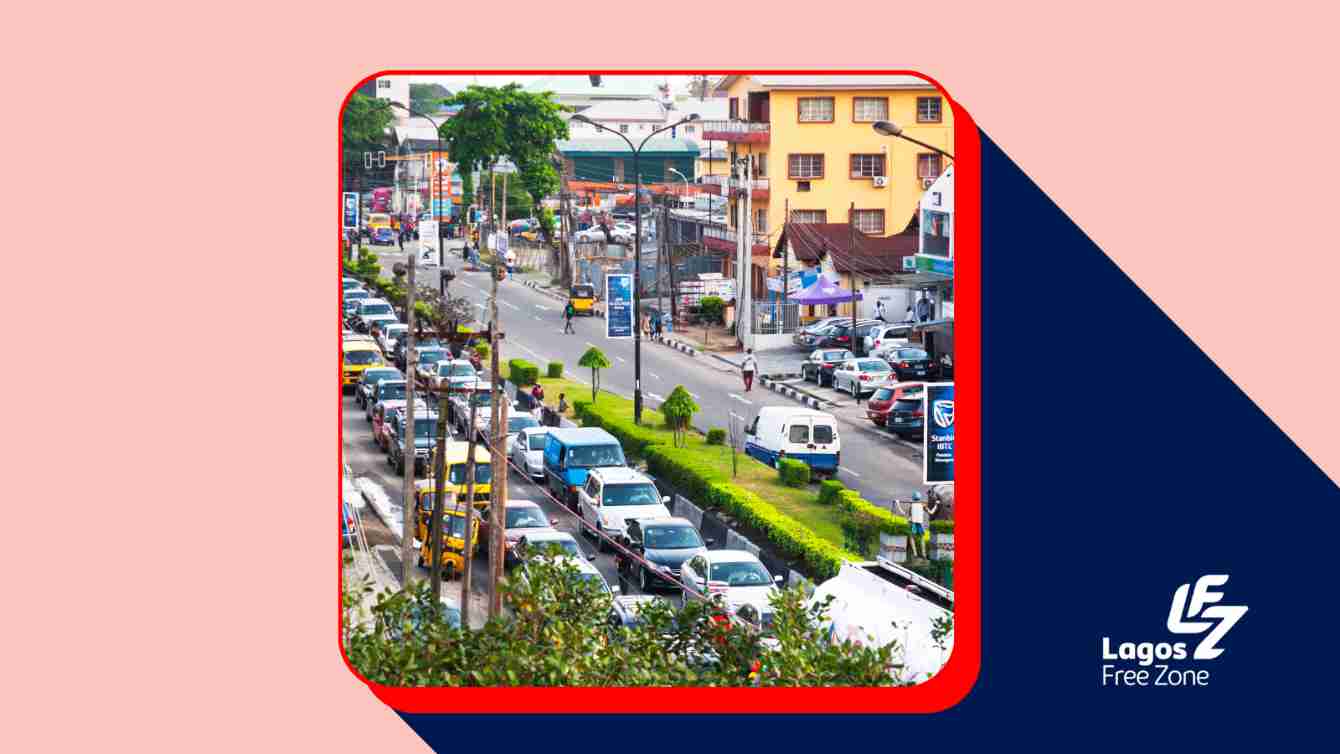Why 2025 Is the Best Time to Invest in Manufacturing in Lagos
17 March, 2025
With significant infrastructure developments, progressive policies, and the strategic contributions of special economic zones, Lagos, Nigeria’s economic capital, is the perfect hub for global investors. Here’s why 2025 is the perfect time to invest in Lagos State’s manufacturing sector.

Aerial View of Lagos Island | Photo by Pao Dayag on Pexels
1. Power and Energy Improvements
The Nigerian government has intensified efforts to improve electricity generation and distribution, ensuring a more stable power supply for industrial operations. Recent reforms, such as the 2023 Electricity Act, have allowed states like Lagos to independently generate and distribute electricity, reducing reliance on the national grid. Lagos State government has invested in dedicated industrial power projects, ensuring uninterrupted electricity supply to manufacturing hubs. In November 2024, Lagos invited bids to construct up to 4,000 MW of gas-fired power plants. These plants will be strategically located near existing distribution substations to optimise power delivery.



Timeline of Lagos State’s Power Reforms in the Last Decade (2015 - 2025)
2. Favorable Policies for Manufacturers
Nigeria’s Industrial Revolution Plan to increase the level of Nigeria’s Industrial output from 4% to 10% of GDP prioritises manufacturing diversification, targeting sectors like automotive, textiles, and pharmaceuticals. Lagos State has taken this national plan a step further through policy reforms toward a manufacturing-friendly environment. One key effort is the establishment of the Lagos State Investment Promotion Agency - also known as the Office of Overseas Affairs and Investment or Lagos Global - in 2015 to attract and facilitate foreign direct investment into Lagos, offering investors support in navigating local regulations and identifying business opportunities within the state.

Flowchart of How Lagos State Investment Promotion Agency (Lagos Global) Supports Investors
The agency played a pivotal role in the enactment of the Business Facilitation (Miscellaneous Provisions) Act in February 2023. This legislation empowers investment promotion agencies to negotiate incentives for strategic investments, improving the ease of doing business in Lagos State. In July 2024, Lagos Global showcased impact investment opportunities across sectors such as health, agriculture, and infrastructure, emphasising the state's commitment to creating an enabling environment for sustainable investments.
3. The Strategic Role of SEZs in 2025
The rise of Special Economic Zones (SEZs) have shaped Lagos as a prime manufacturing destination in recent years, offering investors a business-friendly environment free from traditional bottlenecks. The Lagos Free Zone (LFZ), Nigeria’s first privately owned SEZ, exemplifies this by integrating world-class infrastructure with regulatory incentives to attract global manufacturers.
In 2024, LFZ and its associated port complex remitted over ₦237 billion in customs duties, accounting for approximately 4% of Nigeria's total federal duty collections. LFZ's role in Nigeria's economic landscape continues to grow. In January 2025, the International Finance Corporation (IFC) announced an equity investment of up to $50 million in the Lagos Free Zone Company. This investment supports the development and expansion of Nigeria's first deep-sea port-based private special economic zone, enhancing infrastructure and attracting both local and global businesses.

Aerial Shot of the Lagos Free Zone, showing Industrial Layout and Lekki Deep Sea Port Connectivity
As Lagos continues to expand its SEZ framework, LFZ remains a model of how targeted incentives and infrastructure investment can drive sustainable industrial growth.
4. Rising Consumer Demand in Africa’s Largest Market
Nigeria is home to 237,527,782 people, a 2.08% increase from 2024, with Lagos’ population at 17,156,000, a 3.75% increase from 2024. The country’s growing middle class drives demand for locally manufactured products, especially in fast-moving consumer goods (FMCGs), construction materials, and consumer electronics. Lagos boasts a vast and diverse share of this consumer base.

Inside Ikeja City Mall | Source: Wanted in Lagos
Lagos has Nigeria’s largest concentration of middle- and high-income earners, many of whom prefer locally made products that are readily available and competitively priced. In response, the state government has intensified efforts to boost local manufacturing through industrial hubs such as the Lagos Free Zone, which offers infrastructure and incentives tailored to large-scale production. Furthermore, Lagos is West Africa’s commercial hub, facilitating trade with neighbouring countries through its strategic location and well-established supply chains.
5. Sustainable Manufacturing
Beyond the sustainability that comes with business-friendly infrastructure and policies, environmental sustainability is gaining traction in Lagos’ industrial landscape. In September 2024, Lagos launched an awareness campaign called "Eco Circulate" to advance the circular economy by transforming waste into assets that diversifies the state's resources. In January 2025, Lagos hosted its inaugural stakeholder workshop, bringing together policymakers, innovators, and industry leaders to integrate Environmental, Social, and Governance (ESG) principles into economic strategies. This workshop was part of a broader effort to strengthen Lagos’s green economy.

How Lagos’ “Eco Circulate” Campaign converts waste into valuable resources
These initiatives encourage manufacturers to adopt sustainable practices, leading to cost savings through reduced energy consumption and efficient resource management. A 2022 study examined the impact of green manufacturing practices on operational costs within the FMCG sector in Lagos, and showed that energy-efficient processes significantly lower operational costs.
For instance, LFZ which is home to Kellogg's, Colgate-Palmolive, Indofood, Arla Foods, and more, integrates renewable energy solutions through initiatives like the $30 million natural gas distribution project and the reservation of 5% of its total area for activities including rainwater harvesting and wildlife conservation, ensuring eco-friendly manufacturing processes. LFZ’s model provides a scalable blueprint, showing how adopting renewable energy and water conservation strategies can directly translate to lower utility costs and improved operational efficiency for FMCG manufacturers.
Global investors with ESG (Environmental, Social, and Governance) commitments can therefore align their objectives with Lagos State’s green ambitions especially at a location like Lagos Free Zone.

Green Packaging Factory inside Lagos Free Zone


